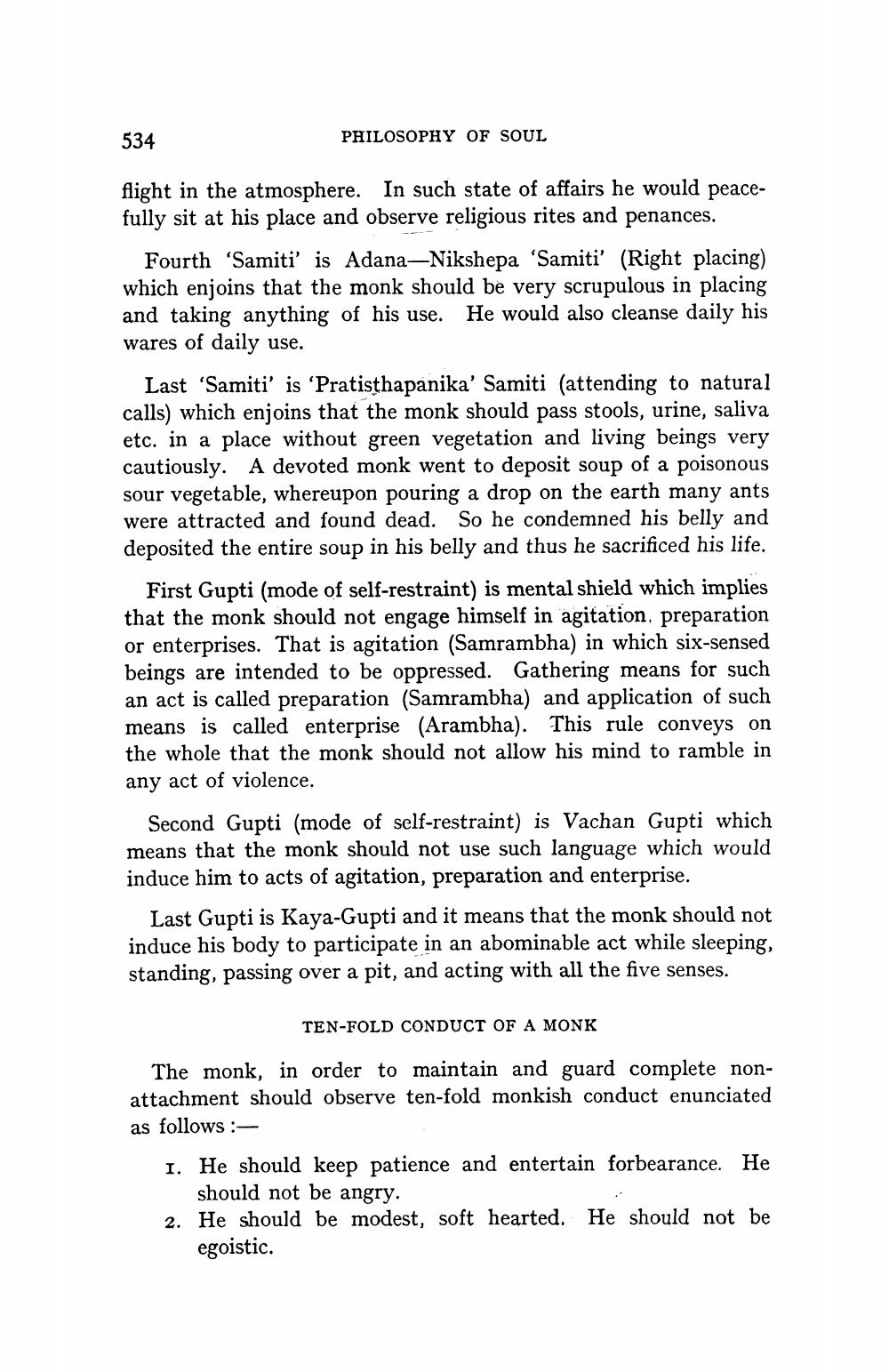________________
534
PHILOSOPHY OF SOUL
flight in the atmosphere. In such state of affairs he would peacefully sit at his place and observe religious rites and penances.
Fourth 'Samiti' is Adana-Nikshepa 'Samiti' (Right placing) which enjoins that the monk should be very scrupulous in placing and taking anything of his use. He would also cleanse daily his wares of daily use.
Last 'Samiti' is 'Pratisthapanika' Samiti (attending to natural calls) which enjoins that the monk should pass stools, urine, saliva etc. in a place without green vegetation and living beings very cautiously. A devoted monk went to deposit soup of a poisonous sour vegetable, whereupon pouring a drop on the earth many ants were attracted and found dead. So he condemned his belly and deposited the entire soup in his belly and thus he sacrificed his life.
First Gupti (mode of self-restraint) is mental shield which implies that the monk should not engage himself in agitation, preparation or enterprises. That is agitation (Samrambha) in which six-sensed beings are intended to be oppressed. Gathering means for such an act is called preparation (Samrambha) and application of such means is called enterprise (Arambha). This rule conveys on the whole that the monk should not allow his mind to ramble in any act of violence.
Second Gupti (mode of self-restraint) is Vachan Gupti which means that the monk should not use such language which would induce him to acts of agitation, preparation and enterprise.
Last Gupti is Kaya-Gupti and it means that the monk should not induce his body to participate in an abominable act while sleeping, standing, passing over a pit, and acting with all the five senses.
TEN-FOLD CONDUCT OF A MONK
The monk, in order to maintain and guard complete nonattachment should observe ten-fold monkish conduct enunciated as follows:
1. He should keep patience and entertain forbearance. He should not be angry.
2. He should be modest, soft hearted. He should not be egoistic.




